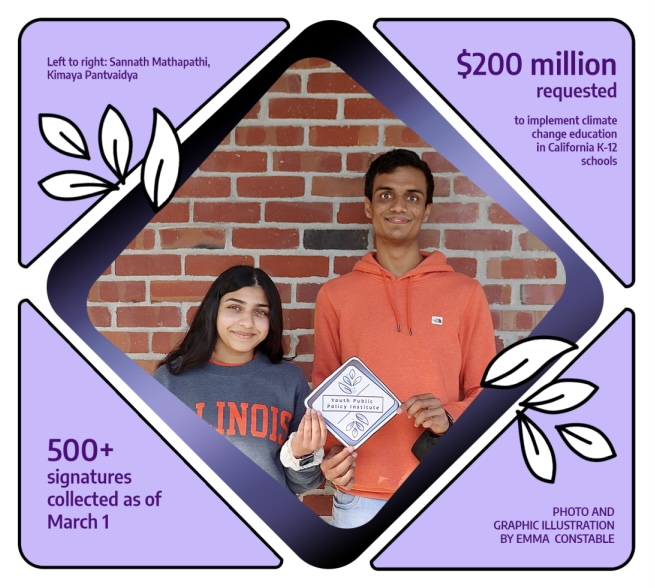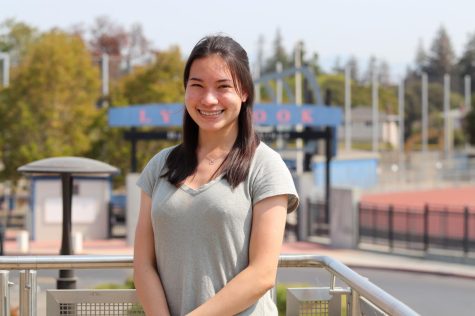Students advocate for climate literacy in schools
Graphic illustration by Emma Constable
Members of YPPI’s Environmental Commission have resumed support of Assembly Bill 1922 after the COVID-19 pandemic halted its progress.
March 8, 2022
Since April 2020, Lynbrook students who are part of the Sunnyvale Youth Public Policy Institute have been helping to push for Assembly Bill 1922, which, if passed, will mandate climate change education for all California K-12 students.
AB 1922 was introduced by Assemblywoman Luz Rivas in 2020 to reform the California education code. While existing law requires that high school students take at least one biological and one physical science course to graduate, the bill aims to add climate change as a core focus to existing classes.
Although Rivas’s bill was intended to introduce climate literacy coursework as soon as the 2020-21 school year, this goal was impeded by the COVID-19 pandemic. Despite consequent stagnation of the bill’s progress, many environmental advocacy organizations have rallied in support of mandatory climate change education.
Among the groups in support is YPPI, which was founded by Sunnyvale students in 2018 with the goal of integrating new programs and legislation impacting the well-being of youths. One of the group’s major achievements to date is the implementation of the HAERT program at Lynbrook in 2019. Their six commissions, which specialize in areas such as mental health, social justice and sexual assault, continue to provide informative resources for the FUHSD community.
YPPI’s Environmental Commission was first introduced to AB 1922 and its mission in 2020. Under the leadership of former commission member and current YPPI President Pranay Mamileti, the commission learned about the bill while researching current environmental initiatives, and were eager to support Rivas’s goal.
“When you know more, you can do more, and you understand all of the different aspects of the situation,” freshman and Environmental Commission member Kimaya Pantvaidya said.
In 2020, the commission began forming a coalition of local green organizations to collaborate with Rivas and her team, but Rivas later announced that she did not plan to pursue the bill in response to the onset of COVID-19.
Two years later, however, the Environmental Commission has resumed increasing awareness of the bill by contacting local youth, parents and administrators to inform them about its goal.
“We have a campaign running on social media to help spread the word, and we’re using all of our connections,” senior and Environmental Commission Chair Sannath Mathapathi said.
These connections include regional branches of the Audubon Society and the Sierra Club as well as fellow nonprofit Silicon Valley Youth Climate Action, all of which habitually collaborate with YPPI to disseminate information to local youths.
The commission has also been collecting signatures on a letter requesting a $200 million investment in climate education to provide project-based learning opportunities as well as interdisciplinary coursework. Written on behalf of major organizations in addition to YPPI such as the YMCA and the Monterey Bay Aquarium, the letter argues that as the climate crisis worsens, future generations will require a fluent understanding of climate change and the ability to make well-informed decisions to address it. The letter has collected more than 500 signatures, and YPPI continues to support the overarching climate literacy education bill to expedite its progress during the pandemic.
“Most students are probably going to complain because it’s more coursework, but it’s going to have a positive impact in the long term,” Mathapathi said. “We’re going to see a shift in how Californians vote if they’re more educated on what’s happening to our planet.”
If AB 1922 is passed during the 2022 legislative session as Rivas and fellow assemblymembers hope, the new requirements for K-12 science curriculums are projected to go into effect in the 2023-24 school year.



































































